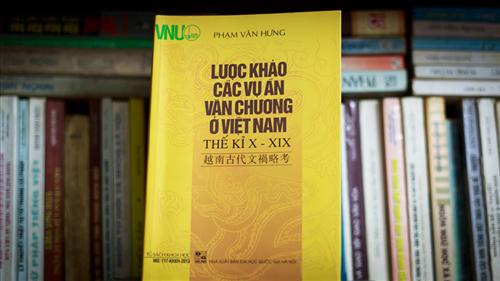

The role of language, first spoken and then written, in human life is truly special, seemingly becoming even more important over time. At a certain point in history, language itself seems to possess immense power, transcending and remaining beyond the control of the speaker. Every design of power holds considerable strength, even after it has faded into the flow of time, leaving behind countless remnants of influence in the "scriptures, histories, philosophies, and collections."
Traditionally, up to the point of having a written record, Vietnam was a nation with a shared culture with other East Asian countries. The ruling dynasties gradually refined the country's governance into a "cultural rule," transforming literate people into privileged individuals and turning literature into a spiritual activity that was both noble and potentially dangerous.
Granting literature such immense power, in China and other medieval countries, also fostered literary growth and the development of literary works, but it also presented unpredictable dangers and traps for those who were "skilled in writing."
For a long time, from professional literary researchers to the general reader, attention and experience have been focused on major works and great authors. This approach isn't wrong, but it's insufficient. A lack of understanding of "trivial matters" often hinders a correct and deep understanding of the author and their work, sometimes even leading to misconceptions about evaluating an entire literary period or era!

This meticulous and thorough approach to literary history, in essence, has nothing in common with the once-popular approach now often recalled with disdain as a "vulgar sociological approach."
Young researcher and lecturer Pham Van Hung is highly aware of the importance and prospects of such a research direction. This book, though not yet substantial, is quite elaborate and represents the initial result of a journey that will likely still require considerable effort to establish what Pierre Bourdieu called a "literary school." Some conceptual terminology in this work may need further consideration, but in my humble opinion, compiling literary cases in the history of Vietnamese literature from the 10th to 19th centuries is a useful and engaging endeavor. From the results of such research and systematization, it is hoped that researchers and readers who love the history of national literature in general will be provided with "food for thought," helping them to perceive and think more deeply and accurately about the laws governing the movement and development of national literature.
We are pleased to introduce this to readers near and far.
Author:Tran Ngoc Vuong
Newer news
Older news